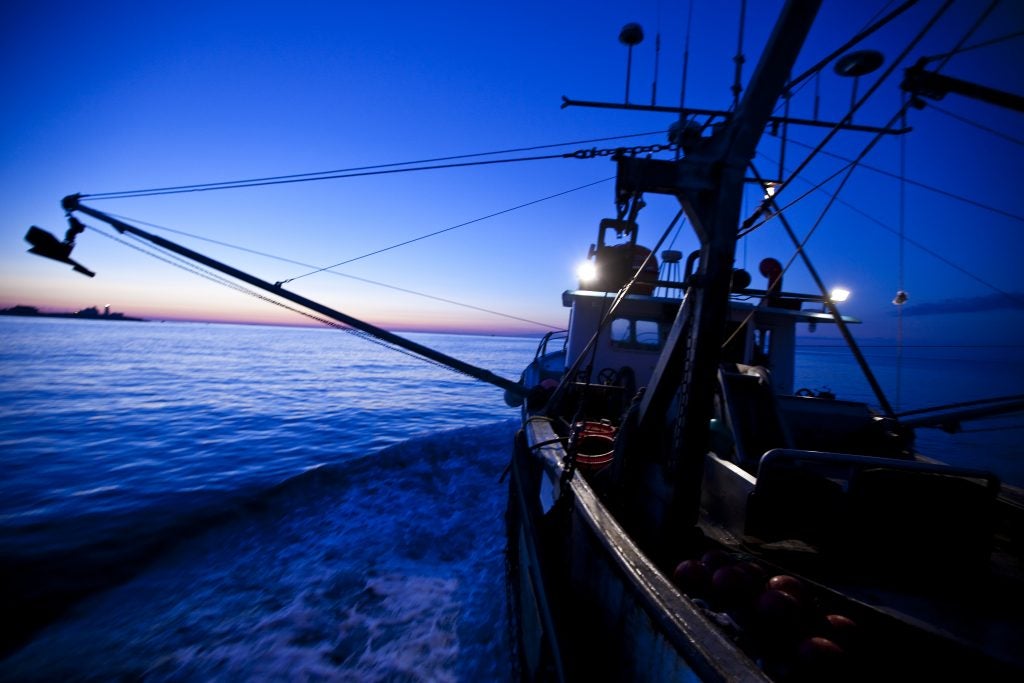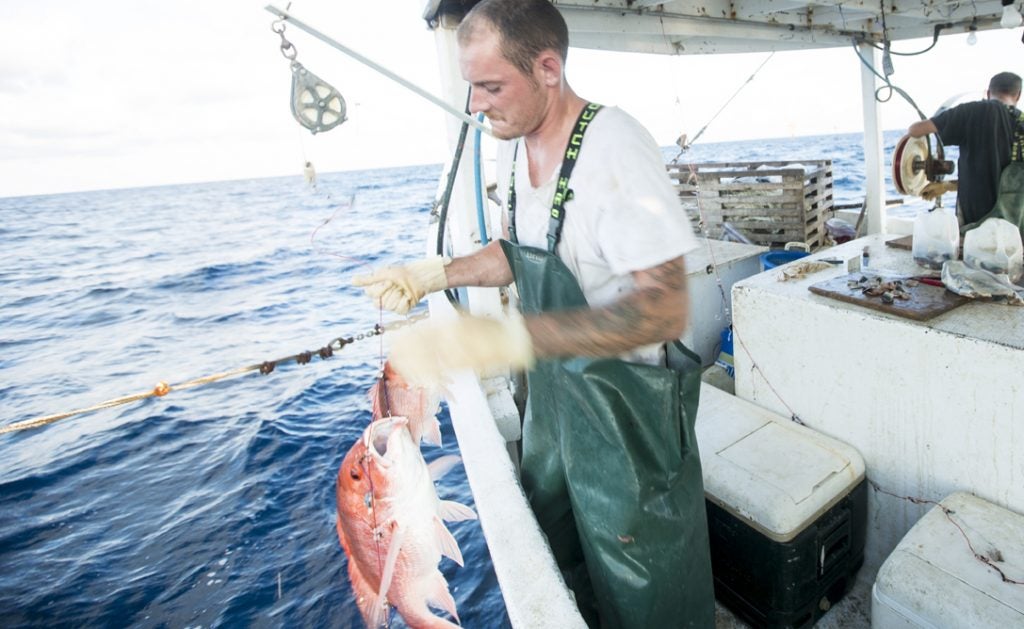If you follow the goings-on of the U.S. Congress, you know that the final months of the year have become a sprint to the finish line marked by bursts of legislative energy and must-pass bills. This year is even more energetic than most. Read More
EDFish
Selected tag(s): Congress
Something ‘fishy’ is happening in Congress
We shouldn’t ignore these conservation threats in fish bills
This year has featured a flurry of fisheries-oriented bills, many with provisions that threaten to undermine the significant progress the United States has made in reducing overfishing and rebuilding overfished fisheries. Understandably, much of our attention as conservationists has been on the threats to annual catch limits, accountability, and rebuilding requirements. But this focus risks missing other aspects of the bills that also threaten conservation without providing any real benefit to commercial fishermen, anglers or seafood consumers.
A closer look at the catch share, reallocation, and exempted fishing permit (EFP) provisions of H.R. 200 and S. 1520 reveals that they would hamstring effective conservation and management. While controversies, complexities, and pressures have led to a push for action on these bills, in the always-complex world of fisheries management, the provisions discussed below are all risk and no reward. Read More
Here’s why new fishing legislation lacks broad support
Update: The bills outlined in this blog were passed by the U.S. House Committee on Natural Resources on December 13, 2017. You can read EDF’s full statement here.
In an intensely polarized age, fishery issues have been among the few to stay above the partisan fray on Capitol Hill. Historically, amendments to the Magnuson-Stevens Act (MSA) have proceeded on a virtually consensus basis, with the 2007 reauthorization passing the Senate without a single “no” vote and other relatively minor changes to the law, such as the recent decision to shift management of Dungeness crab to the State of Washington, proceeding with bipartisan support. In taking this approach, lawmakers are following the lead of user groups, which often overcome legitimate differences on how to approach key issues at the local and regional level. In the past these solutions have followed an overall strategy of science-based management that has sharply reduced overfishing in the United States, fueled the recovery of dozens of depleted species, and enabled higher fishing quotas from the Gulf of Mexico to the Gulf of Alaska. Read More
Science-based management in U.S. fisheries: Progress and the road ahead
In August, I had the honor of being the co-organizer of a symposium at the American Fisheries Society Annual Meeting titled “Ten Years of Science-Based management in U.S. Fisheries: Progress and the Road Ahead” with my colleague Jake Kritzer. A distinguished group of eight speakers joined us to present papers on topics ranging from the evolution of the Magnuson-Stevens Act to the benefits that science-based management has yielded for Alaskan fisheries, and discuss how the Act has performed and how to tackle the challenges that remain with fisheries scientists and managers from across the country and globe.
 Speakers included scientists, managers, and a commercial fisherman and covered a geographic range from Florida to Alaska. Some of the speakers approached the subject with experience that extended back to well into the previous versions of the Act.
Speakers included scientists, managers, and a commercial fisherman and covered a geographic range from Florida to Alaska. Some of the speakers approached the subject with experience that extended back to well into the previous versions of the Act.
The consensus could be best summed up by one a point made by Dr. Mike Sissenwine, a council member of New England Fishery Management Council, early in his presentation: Science-based management has worked.
Overall, the group concluded that the current incarnation of the Magnuson-Stevens Act has greatly improved conservation outcomes. Since the reauthorization, overfishing has decreased dramatically and a significant number of stocks have been rebuilt.
Our commercial fishing participant, Jason de la Cruz from Florida, noted that the current Act made him feel more confident about the basis of decisions and had led to increased opportunities to collaborate on science. In Alaska, Diana Evans, deputy director for the North Pacific Fishery Management Council, highlighted that fishermen and managers now look beyond the difficult task of setting annual catch limits to new management challenges like ecosystem-based fishery management that can be informed by innovative scientific tools being created for their Fishery Ecosystem Plan. Read More
Congress Shouldn’t Destabilize Our Fisheries
 Next week, the House of Representatives will consider H.R. 1335, a bill to reauthorize the Magnuson-Stevens Fishery Conservation and Management Act. Fisheries issues often avoid the partisanship that otherwise rules (some would say cripples) Washington, but the Natural Resources Committee voted out H.R. 1335 strictly on party lines, and we expect the same outcome next week. That’s a shame, not only because of the breakdown of bipartisanship, but also because this is a bad bill.
Next week, the House of Representatives will consider H.R. 1335, a bill to reauthorize the Magnuson-Stevens Fishery Conservation and Management Act. Fisheries issues often avoid the partisanship that otherwise rules (some would say cripples) Washington, but the Natural Resources Committee voted out H.R. 1335 strictly on party lines, and we expect the same outcome next week. That’s a shame, not only because of the breakdown of bipartisanship, but also because this is a bad bill.
Many have written about how much U.S. fisheries management has improved over the last several years. A recent report from NOAA Fisheries confirms that overfishing numbers hit all-time low in 2014, and that 37 species around the country have rebuilt since 2000. EDF is proud to have worked side-by-side with the fishing industry as these gains have been made – not only because they’re delivering a healthier marine environment but also because they’re supporting more profitable fishing businesses and more prosperous coastal communities. Unfortunately, H.R. 1335 would jeopardize this progress. It would also put unnecessary restrictions on the decisions of the regional fishery management councils, long the bedrock of fishery management in the United States and a means for local fishermen and others to participate directly in the rulemaking process. Read More
Out with the tide: Lessons from Steve Southerland’s shock electoral defeat
 For Republicans, this week’s midterm elections are cause for almost unreserved celebration. GOP candidates came close to sweeping the table in competitive House and Senate races around the country. Among the winners were Republican incumbents who have been constructive partners on fisheries issues and who were strongly supported by EDF Action, our sister organization: leaders like Senator Susan Collins in Maine and Congressman Chris Gibson in New York.
For Republicans, this week’s midterm elections are cause for almost unreserved celebration. GOP candidates came close to sweeping the table in competitive House and Senate races around the country. Among the winners were Republican incumbents who have been constructive partners on fisheries issues and who were strongly supported by EDF Action, our sister organization: leaders like Senator Susan Collins in Maine and Congressman Chris Gibson in New York.
One House race, however, ran starkly against the trend. Two-term Republican incumbent Steve Southerland went down to a stunning defeat in the Florida panhandle’s second congressional district. While many factors shaped the outcome—not least of which was a series of missteps on the campaign trail by an incumbent facing a smart and savvy challenger—make no mistake: Steve Southerland’s outspoken anti-oceans agenda was on the ballot in Florida 2, and his defeat is a strong repudiation of the incumbent’s approach. It is yet another sign that ‘politics as usual’ in fisheries management is changing as fishermen and environmentalists work together to build healthier and more productive fisheries. Read More











